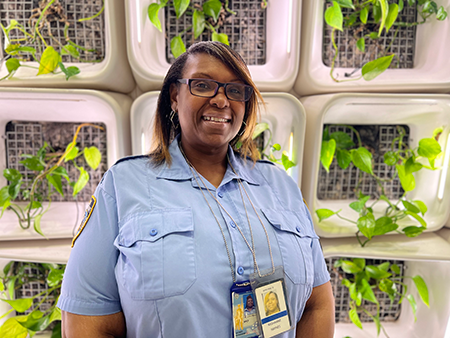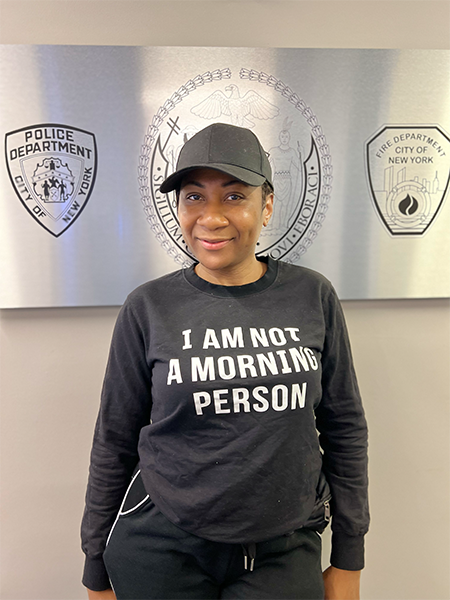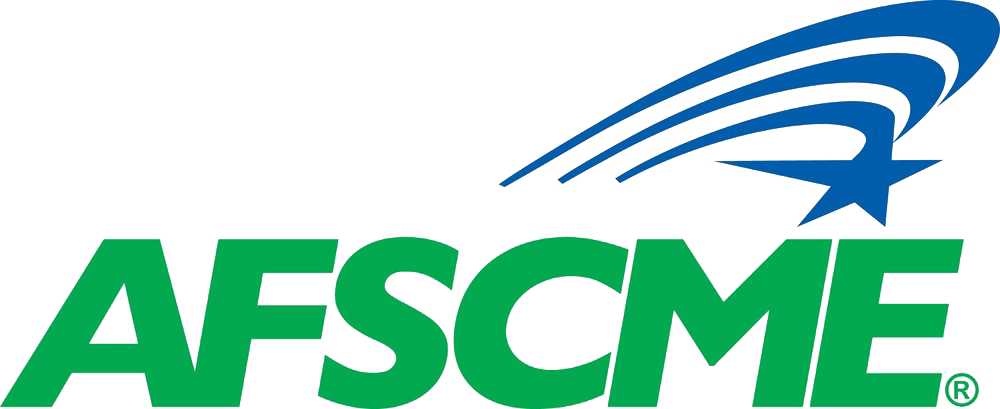
Rashawne Haynes. Photo by Anna Dang.
NEW YORK – It’s National Public Safety Telecommunicators Week, and AFSCME members honor the front-line workers who answer 911 calls during emergencies here in New York and across the country.
Two of those workers are Rashawne Haynes and Zulehka Brathwaite, who work New York City’s 911 police communications technician unit and are members of AFSCME Local 1549 (District Council 37).
Haynes, a supervisor of police communications technicians who has worked for the city since 1999, has responded to calls for help during some of the most traumatic, harrowing moments in New York’s history, from 9/11 to Hurricane Sandy to the COVID-19 pandemic.
“We do this every day just to assist, to help, to aid,” said Haynes. “Every day is different. Every day is challenging. I just want to put forth the best version of me every day and hope that we can help someone along the way.”
For Brathwaite, a New York police communications technician for 17 years, it is the life-saving nature of her work that drives her to show up every morning.

Zulehka Brathwaite. Photo by Anna Dang.
“We’re hearing units running from building to building, people getting shot, people getting stabbed, people getting robbed, people jumping off the buildings, babies dying — every single day,” said Brathwaite. “I try to put myself in their shoes to motivate them, talk to them, pull them through whatever they may be going through.”
Haynes and Brathwaite advocate for a workplace that shows 911 communicators the respect they deserve for doing such an essential job.
Across the country, AFSCME members are championing federal legislation – the 911 Supporting Accurate Views of Emergency Services Act (911 SAVES) – that would change how the federal government classifies 911 dispatchers.
Instead of being designated as office and administrative support, they would rightfully be in a “protective service occupations” category along with firefighters, law enforcement officers and other public safety staff. In addition to providing the recognition and respect our 911 dispatchers deserve, the bill, which is expected to be reintroduced in the 118th Congress, would also be a first step toward providing funding for training and mental health resources.
The author of the House version of the bill, Rep. Norma Torres (D-Calif.), worked as a 911 dispatcher in southern California for 17 years, where she was a member of AFSCME Local 3090.
According to Haynes, prioritizing the jobs 911 dispatchers do keeps 911 systems as effective as possible. Short staffing is a key issue that dispatchers are forced to grapple with.
“We dispatch units out to the field, so we don't want anyone to wait, yet we experience delays because there’s not enough people to answer those 911 calls,” Haynes said. “As short staffing goes up, you have to stay for overtime. A lot of the women here are single moms … who may miss certain events like birthdays or graduations, a lot of different life things that most people get a chance to do. That’s hard.”
For National Public Safety Telecommunicators Week, AFSCME President Lee Saunders prioritized action, in addition to recognition, for 911 dispatchers.
“With the right backup and support, these courageous heroes can make an even greater difference within the communities that depend on them,” Saunders said. “This National Public Safety Telecommunicators Week, let's commit to staff the front lines.”
Also this week, AFSCME launched a website for our union’s Staff the Front Lines initiative to highlight the valuable work performed by public service workers and demand that state and local governments hire enough workers to provide the services communities need and deserve.

